
Topics
Guests
- Laura Embree-Lowryprogram director of CISPES, the Committee in Solidarity with the People of El Salvador. She has been based in San Salvador for the last five-and-a-half years.
Both candidates have claimed victory in El Salvador’s presidential election after a preliminary count showed the vote was too close to call. The race pitted the governing party’s Salvador Sánchez Cerén against the right-wing candidate Norman Quijano. Sánchez Cerén, a former rebel commander, was running to replace Mauricio Funes, marking the first time an FMLN candidate succeeds another after decades of right-wing governments. Sánchez Cerén was seen as the favorite coming in, but the latest results show him ahead less than 1 percent. We go to El Salvador to speak with Laura Embree-Lowry of CISPES, the Committee in Solidarity with the People of El Salvador.
Transcript
AMY GOODMAN: This is Democracy Now!, democracynow.org, The War and Peace Report. I’m Amy Goodman, as we end today’s show on El Salvador, where both candidates have claimed victory in Sunday’s presidential election after a preliminary count showed the vote too close to call. The race pitted the governing party’s Salvador Sánchez Cerén against the right-wing candidate, Norman Quijano. Sánchez Cerén, a former rebel commander, was running to replace Mauricio Funes, marking the first time an FMLN candidate succeeds another after decades of right-wing governments. Sánchez Cerén was seen as the favorite coming in, but the latest results show him ahead less than 1 percent.
We go now to San Salvador, where we’re joined by Laura Embree-Lowry, the program director of CISPES, the Committee in Solidarity with the People of El Salvador. She’s been based in San Salvador for the last five years.
Welcome to Democracy Now! What is the latest news on this election, Laura?
LAURA EMBREE-LOWRY: Thank you, Amy, and good morning.
So, as you mentioned, it’s a very, very close race. The preliminary results are showing 50.11 percent for the FMLN and 49.89 percent for the right-wing ARENA party. That’s with over 99.9 percent of the tables reporting at this point. So the electoral authority, the Supreme Electoral Tribunal, has said that because of the closeness of the race, they won’t be declaring an official winner until they’ve actually done the final count of the—you know, the original results from each table. But what we’re seeing right now is, in the preliminary results, that the FMLN, the leftist party, is ahead by over 6,300 votes.
What’s really concerning is the right-wing party having declared victory extremely early, when less than 70 percent of the voting tables were reporting. And it seems to go along with the trends that we saw before the election of them setting up the stage to discredit the election results after they had been announced. And last night, when Norman Quijano, the right-wing ARENA candidate was declaring victory, he was already calling fraud and saying that the TSC’s refusal to give a definitive result right now is a sign of fraud. He was also—called on the armed forces to protect democracy and to defend El Salvador’s democracy against the fraud that was being committed. So this is very concerning, especially because all of the observer missions have noted the transparency of the process, the tranquility with which it developed. The OAS, Organization of American States, observer mission has said that El Salvador’s electoral system is cutting-edge for the Central American region. So, also, the ARENA candidate, Norman Quijano, also said that his party was ready for war—
AMY GOODMAN: He’s the mayor of San Salvador.
LAURA EMBREE-LOWRY: —in terms of defending democracy [inaudible] fraud. I’m sorry?
AMY GOODMAN: He’s the mayor of San Salvador?
LAURA EMBREE-LOWRY: Yes, he’s the mayor of San Salvador and the candidate for the right-wing ARENA party.
AMY GOODMAN: Right. And then talk about the significance of Sánchez Cerén, also from the FMLN, as the current president, Mauricio Funes, is.
LAURA EMBREE-LOWRY: Well, Sánchez Cerén is a former guerrilla commander from when the FMLN was a rebel group during the civil war. The FMLN was, of course, incorporated into the electoral system after the peace accords were signed in 1992, and Sánchez Cerén has served as vice president in Mauricio Funes’s administration, as well as minister of education, in which he launched some really cutting—I guess some really amazing social programs, including free uniforms, free school lunches for school children, a literacy program to eradicate illiteracy in the country. And so he’s really a very popular candidate because of how those programs have touched so many lives of the poor majority in El Salvador.
AMY GOODMAN: Well, of course, we’ll continue to cover these results. Again, they have not been announced yet, the election for president in El Salvador. Laura Embree-Lowry, speaking to us from San Salvador, program director at CISPES, the Committee in Solidarity with the People of El Salvador.
And that does it for our broadcast. I’ll be on the road tomorrow on—as we mark the third anniversary of the meltdown at Fukushima, we’ll be playing an interview with the former Japanese prime minister, Naoto Kan. When we were in Tokyo, we interviewed him. Tomorrow night, I’ll be speaking at University of Massachusetts, Amherst, at Bowker Auditorium at 7:00 p.m. On Thursday, in Flagstaff at Northern Arizona University at the Cline Library at 7:00. Friday in Santa Fe, speaking at the Lensic. And on Saturday, I’ll be in Denver, Colorado. All are welcome. Go to our website at democracynow.org.

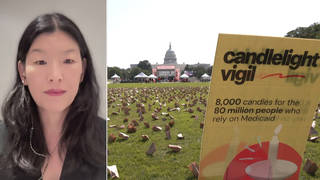

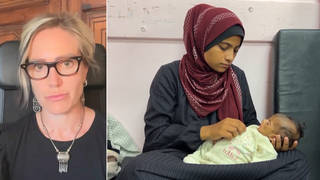
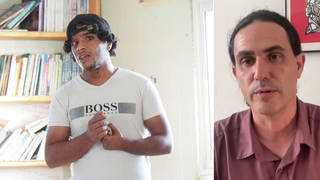





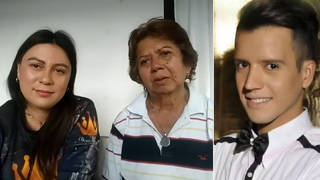

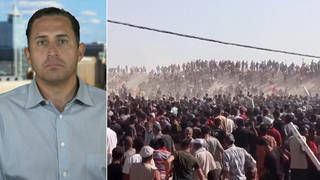
Media Options